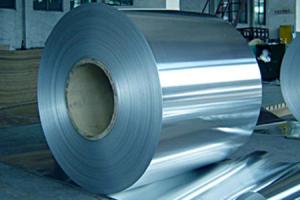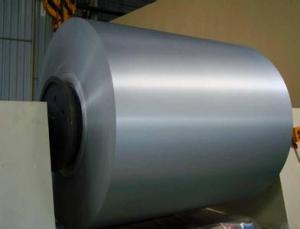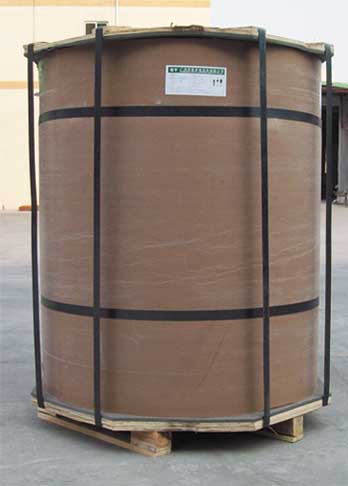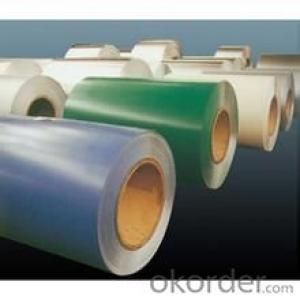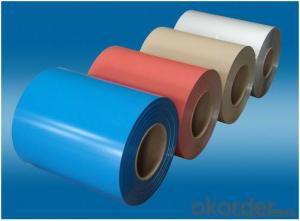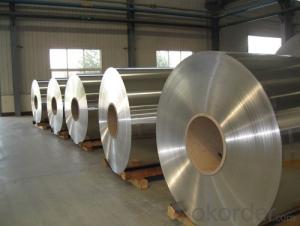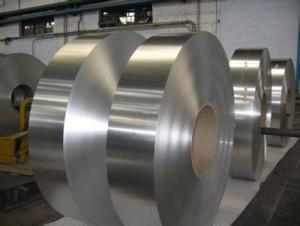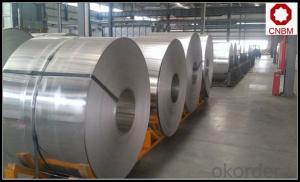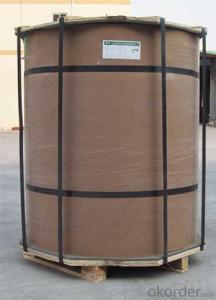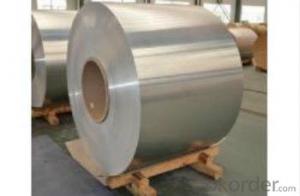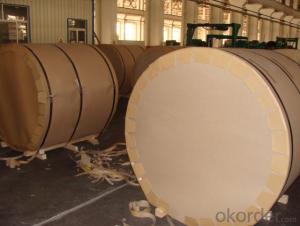1050 Aluminum Coil - Aluminum Strips Mill Finished 1xxx
- Loading Port:
- China Main Port
- Payment Terms:
- TT or LC
- Min Order Qty:
- 5 g/ft
- Supply Capability:
- 10000 g/ft/month
OKorder Service Pledge
OKorder Financial Service
You Might Also Like
1.Structure of Aluminum Strips Mill Finished 1XXX Description
Aluminum Strips Mill Finished 1XXX has great ductility, heat conductivity, anti-corrosion and moisture resistance properties.
Aluminum Strips Mill Finished 1XXX is widely used for electronics, instruments, lighting decoration, packing industry, house decoration, curtain wall, honeycomb-core panel, sandwich panel, aluminum composite panel and aluminum composite pipes.
2.Main Features of Aluminum Strips Mill Finished 1XXX
• Superior quality of raw material
• Reasonable and stable chemical composition
• Accurate tolerance
• Goode mechanical property
3.Aluminum Strips Mill Finished 1XXX Images
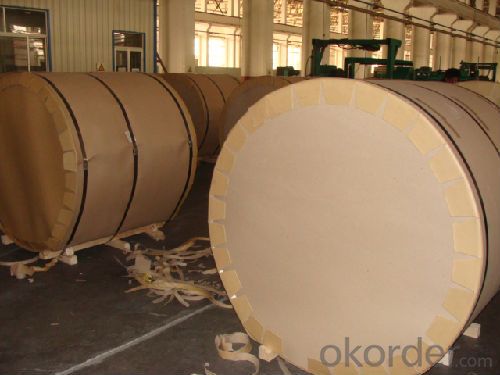
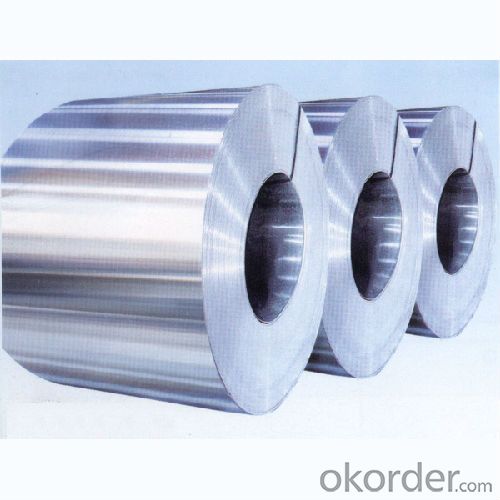
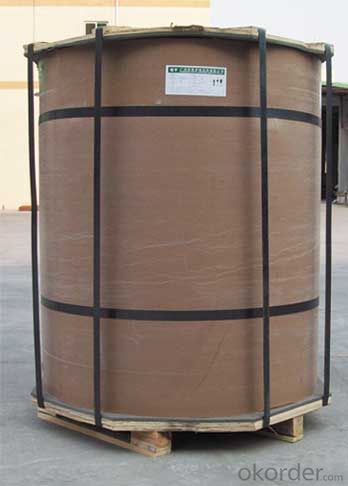
4.Aluminum Strips Mill Finished 1XXX Specification
| Alloy | AA1xxx (AA1050,AA1060,AA1070,AA1100 etc. |
| Temper | H14,H16,H18,H22,H24,H26,H32,O/F |
| Thickness | 0.2mm--100mm |
| Width | 30mm--1700mm |
| Standard | GB/T 3880-2006 |
5. FAQ of Aluminum Strips Mill Finished 1XXX
A.How to guarantee the quality?
Customers are welcome to our mill to visit and check the products. Besides, we can arrange a third party to test Aluminum Strips Mill Finished 1XXX products.
B.When will you deliver the products?
Aluminum Strips Mill Finished 1XXX will be delivered within 35 days after receiving advanced payment or original L/C.
- Q: also, can aluminum become oxidized when secured down with metal nuts and bolts vice stainless steel nuts and bolts?
- Aluminum is very reactive to caustic substances, as well as acids. One of the perils of running nitrous oxide injection on a motor with aluminum heads or pistons is that you generate trace amounts of nitric acid which will corrode these parts over time. As mentioned here by other members, aluminum oxide is a powdery white residue. In the presence of water for a long period of time, or with the reactions mentioned above, aluminum will oxidize. If it's wheels you are talking about, the best solution is to keep them clean, dry, and free of brake dust. A lot of wheels though come with a coating to protect the aluminum.
- Q: Can aluminum coils be used for aerospace applications?
- Indeed, aerospace applications can make use of aluminum coils. Aluminum, renowned for its exceptional blend of lightweightness, strength, and resistance to corrosion, is widely employed in the aerospace sector. Aluminum coils play a vital role in fabricating diverse components and structures essential to aerospace applications, encompassing aircraft frames, wings, fuselages, and engine parts. By utilizing aluminum coils, the overall weight of the aircraft is reduced, thereby enhancing fuel efficiency and boosting performance. Furthermore, the malleability, weldability, and machinability of aluminum coils make them well-suited for the intricate shapes and structures demanded in aerospace engineering.
- Q: Are there any limitations to the minimum coil width of aluminum coils?
- Limitations exist for the minimum coil width of aluminum coils due to various factors, such as the manufacturing process and equipment used. Generally, the coil width is restricted by the capabilities of the rolling mill or other processing machinery. The minimum coil width is typically determined by the size of the rolls or mandrels utilized during production. If the coil width becomes too narrow, it can lead to stability and integrity issues, making handling and transportation more challenging. Furthermore, a narrower coil width may impact the overall efficiency of the manufacturing process. Hence, it is crucial to take these limitations into account when establishing the minimum coil width for aluminum coils.
- Q: This question seeks to understand the various types of aluminum coils that are commonly found in the market.
- <p>Aluminum coils available on the market today can be categorized based on their properties and applications. These include: 1. Plain Aluminum Coils: Used for general purposes like packaging and construction. 2. Embossed Aluminum Coils: Feature a textured surface, used in decorative applications. 3. Alloy Aluminum Coils: Made from a mixture of aluminum and other metals for enhanced strength or corrosion resistance. 4. Color Coated Aluminum Coils: Coated with paint or plastic for aesthetic or protective purposes. 5. Heat Treated Aluminum Coils: Processed to improve their mechanical properties. 6. Mirror Finish Aluminum Coils: Have a highly reflective, polished surface. 7. Pre-painted Aluminum Coils: Coated with a layer of paint before being used in construction or other applications. Each type serves specific industries and applications, with variations in thickness, width, and alloy composition.</p>
- Q: Aluminum is a metal and nitrate (nitrogen) is a non metal so shouldn't they form an ionic bond and not a covalnt bond? And if it were an ionic bond wouldn't it be called aluminum mononitrate? But it is a covalnt bond (thus a molecular bond and so there is no mono in the name). Pleas help I'm very confused!
- You have the advantage here. As far as I know, the compound is ionic with one Al^+3 ion and three NO3^-1 ions. There have to be 3 negative ions to balance the charge of +3 on the aluminum ion to make a neutral formula unit
- Q: Are there any limitations on the embossing of aluminum coils?
- Yes, there are limitations on the embossing of aluminum coils. The main limitations include the thickness and temper of the aluminum, as well as the complexity and depth of the desired embossing pattern. Additionally, the embossing process may affect the overall flatness and surface quality of the aluminum coil.
- Q: What are the potential applications of mill-finished aluminum coils?
- Mill-finished aluminum coils have a wide range of potential applications due to their excellent corrosion resistance, lightweight nature, and versatility. Some common applications include roofing, insulation, cladding, automotive parts, electronic casings, and packaging materials. Additionally, mill-finished aluminum coils can be further processed or coated to suit specific needs in industries such as construction, transportation, aerospace, and consumer goods.
- Q: for purchasing aluminium are the grades to be mentioned
- If it is a product for work, yes engineers and purchasers specify the grades. If for hobby then it is up to you. Common extruded shapes (beams, tubes, angles) - 6061-T6 - 6063-T5 -T6 specifies tempering class. Actually both alloys come in various T4, T5, etc., the above are just two common combinations. 6061 is a little stronger, and T6 gets its strength up quite good. Beware that welded joints are weaker since heat removes the strength from tempering. Some common sheets - 6061 (strength) - 5052 (strength, welds better than 6xxx, good formability) - 5068 (some call it 'marine grade' for corrosion resistance) Sheets can come in many alloys.... you may get cheaper grades if you don't need one of these. (if you are casting - there's whole other system of grades.) The above are just common grades. For high strength requirement you may need a specific grade in the 7xxx family.
- Q: Are aluminum coils suitable for thermal insulation?
- Aluminum coils, unfortunately, do not serve as suitable thermal insulation. With its high conductivity, aluminum promptly transfers heat, rendering it ineffective in impeding heat transfer between areas or maintaining desired temperatures within a given space. In order to achieve optimal thermal insulation, materials boasting low thermal conductivity, such as fiberglass, mineral wool, or foam insulation, are preferred as they effectively minimize heat transfer and offer superior insulation.
- Q: I am trying to electropolish the surface of a 3003 aluminum sample to analyze in the SEM. I was wondering if anyone knew what electrolyte and electropolishing paramaters work for this alloy. So far I have used phosporic+ethanol+water at 50V for 2 minutes with minimal success.
- Aluminium needs deoxidizing also called as desmutting after electropolishing. This is done in a hot chromic acid bath for nearly for 5 minutes.
Send your message to us
1050 Aluminum Coil - Aluminum Strips Mill Finished 1xxx
- Loading Port:
- China Main Port
- Payment Terms:
- TT or LC
- Min Order Qty:
- 5 g/ft
- Supply Capability:
- 10000 g/ft/month
OKorder Service Pledge
OKorder Financial Service
Similar products
Hot products
Hot Searches
Related keywords
